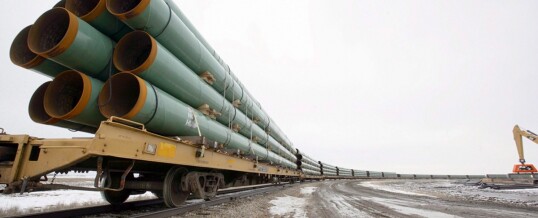
Once again, the Obama administration is picking winners and losers when it comes to energy. The president has vowed that America will be a net energy exporter. There’s only one roadblock: Obama himself.
While the Environmental Protection Agency (EPA) has cracked down on American coal production, which adds more than $1 trillion in gross domestic product (GDP), generates more than $360 billion in household income and supports nearly 7 million jobs, the Obama administration has “discovered” that the United States has solid reserves of natural gas.
From 2008 to 2012, it is estimated that domestic natural gas production rose 20 percent. As a result of new technologies, there is enough natural gas, which combined with coal, to turn America into a net energy exporter.
So is it time to back the tankers up to start exporting? Not so fast.
Ernest Moniz, the new secretary of the Department of Energy, called for a further review of the proposals before making any final decisions on liquefied natural gas exports. This, despite the fact that the White House proposed that being seen to restrict exports for the benefit of domestic industry “would send a terrible signal about the country’s support for free trade.”
It didn’t seem to bother them when they vowed to close down any new coal operation that dared to begin mining.
The Associated Press reported that U.S. coal exports reached their highest level in two decades in 2011, as strong demand from Asia and Europe offered an outlet for a fuel that is now under attack here in America.
Department of Energy data analyzed by the AP reveal that coal exports topped 107 million tons worth almost $16 billion in 2011. That’s the highest level since 1991 and more than double the export volume from 2006. And while the United States has a trade deficit of some $600 billion in oil, it will have a trade surplus of up to $10 billion in coal.
Much of the increase went to satisfy power-hungry markets in Asia, particularly South Korea (up 81 percent to 10 million tons); India (up 65 percent to 4.5 million tons); and Japan (up 119 percent to 7 million tons). Exports also were up in Brazil, China and several European nations seeking high-quality coal for steelmaking, according to the Energy Department data.
Meanwhile, the International Energy Agency reported that U.S. crude oil production will grow by 30 percent by 2018.
So the big question remains: If the EPA keeps the United States from mining coal, has reservations about fracking to free up natural gas and has only allowed oil exploration on private lands, how are we to believe that the United States will produce enough energy so that we can export?
Let’s not forget about the proposed Keystone XL pipeline, which would follow a direct route from Alberta, Canada, through Montana and South Dakota to Nebraska and then continue through Kansas and Oklahoma to the refineries in Texas along the Gulf Coast.
This new pipeline would ideally transport crude petroleum recovered from the Alberta tar sands and from the North Dakota shale fields.
Despite the fact that this crude is ideally suited for export, the EPA has thrown every obstacle it can think of to prevent approval of this pipeline, mostly to appease a throng of unrealistic environmentalists. By the way, the EPA isn’t any more enamored with natural gas production, which despite being more environmentally friendly, still is castigated as a fossil fuel.
There is no reason the United States can’t become the world’s leading net energy exporter. It takes resolve and a president who stands behind his promise to double exports by 2015. It also takes an administration that stops using regulations to punish energy companies they don’t like.
Here’s something to consider that should cause all Americans to embrace energy exports: the U.S. goods trade deficit with China reached an all-time high of $315.1 billion in 2012, an increase of $19.6 billion (6.6 percent). One of the biggest negative outcomes of this trade imbalance with China is that between 2001 and 2011, more than 2.7 million U.S. jobs were eliminated.
Trade with China involves less than $1 billion in crude and refined petroleum products. Think of the potential for reducing our trade deficit with China if we could double or triple our energy exports to China, which craves our cleaner coal and gas.
And then think of the millions of new jobs we could create. This isn’t a pipe dream — it’s something as a nation we can accomplish. But it’s time to stand up and stop allowing a small vocal minority from dictating our energy policy. Our pipe dream should be watching coal, oil and gas flow through our pipelines to foreign markets.
© 2013 Moneynews. All rights reserved.
Read Latest Breaking News from Newsmax.com http://www.moneynews.com/NealAsbury/EPA-coal-gas-energy/2013/06/06/id/508359#ixzz2VTKKbryH
JUN



